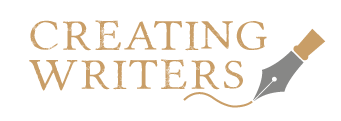Charlie Laidlaw is an author and tutor at Creating Writers
A good book should be as long as it needs to be, and no longer. For debut authors, alas, that doesn’t really work now.
Most publishers now want books with minimum word counts. It’s part of their policy because it helps them set price points.
On that basis would The Hitchhiker’s Guide to the Galaxy have been published now? Or Of Mice and Men? Or A Christmas Carol?
It therefore saddens me that mainstream publishers want books that tick boxes, and one box to be ticked is word count.
Perhaps the apocryphal shortest story, attributed to Ernest Hemingway, is a little too short. “For sale: baby shoes. Never worn.”
Those six words do constitute a story, albeit a story without explanation. Did the mother miscarry? Almost certainly, the family must have been poor.
It is the original flash fiction; a short story filled with ambiguity and tragedy. It invites you, the reader, to invent the rest of the story.
Word count
So how long should your book be? Well, my advice is to first write it out and then see what the word count is.
It was an approach I used with my last book. I wrote down the main story to about 45,000 words. Then I expanded on characterisation and sub-plots, and rewrote it to 80,000 words.
It was an approach that worked well for me. By the end of the first draft, I knew the story and I knew the characters. I also knew where the gaps lay.
All I had to do was flesh it out – and I don’t mean with waffle. Every word in a book should have weight.
If your book is short on words, the temptation is to pad it out. Like describing a sunset in the smallest detail. Don’t. We know what a sunset looks like.
Or, just as bad, writing in irrelevant scenes or dialogue – things that add nothing to the story or a character. Readers can spot waffle a mile off.
Only write in in what matters. To the story or to characterisation. Write in an unexpected twist or a sub-plot. But, please, make those words count.
Poe
Or, if all else fails, follow Edgar Allan Poe’s advice. “Include a beautiful woman with raven locks and porcelain skin, preferably quite young, and let her die tragically of some unknown ailment.”
While there’s no agreed word count in the publishing trade, for literary fiction anything from 60,000 to 100,000 words is okay. However, be warned, some publishers will baulk at that lower figure. Best aim for around 70,000-80,000 words at least.
For young adult fiction, the recommended word count is lower – say 55,000 to 80,000 words but, again, different publishers have different rules.
I personally don’t believe that word count should matter. It’s the story that should matter, and shorter novels often carry the most impact.
After all, The Great Gatsby, by F. Scott Fitzgerald was only just over 47,000 words. It’s often referred to as one of the most accomplished American novels ever written.
Or Ernest Hemingway’s The Old Man and the Sea at under 30,000 words. A bit longer than his six-word short story, but it would be classed as a novella today.
However. if you want to try to be published by a mainstream publisher, you sadly have to play by their rules. Or play by your rules and self-publish.
Courses
My advice is just to write your story, because you love writing and you want to share it. Worry about word count at some point in the future.
If you need help getting started, Creating Writers has two creative writing courses, an introductory course and our flagship Diploma course – with a real qualification at the end of it.
They’re intended to give you the confidence and skills to understand what makes great writing.
It could be the start of a whole new journey, however many words it takes.
For more information, you can contact us here.
Photo by Scott Graham on Unsplash

